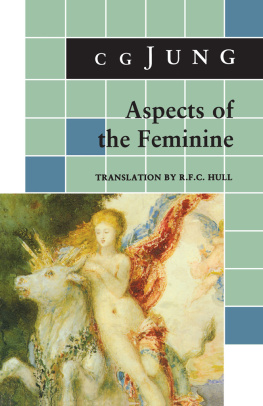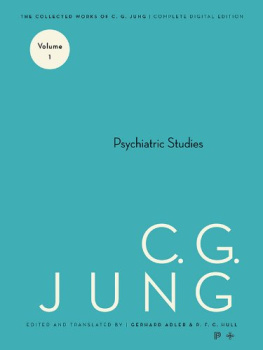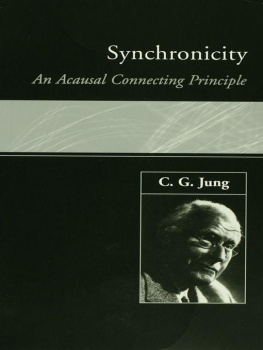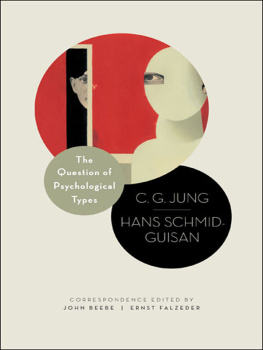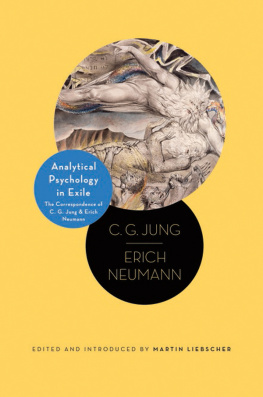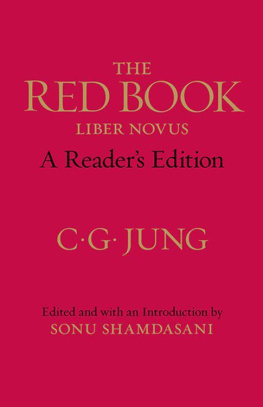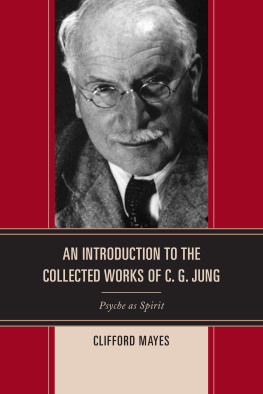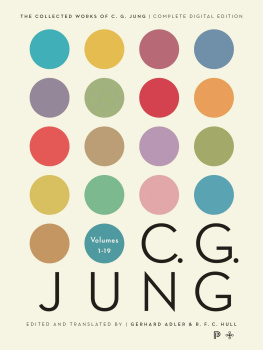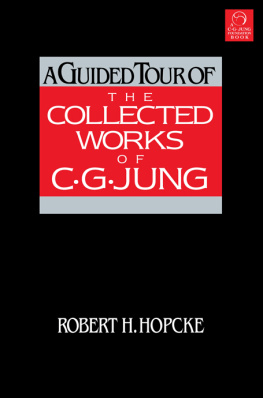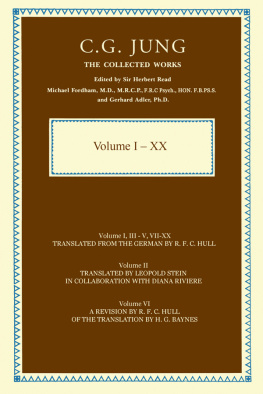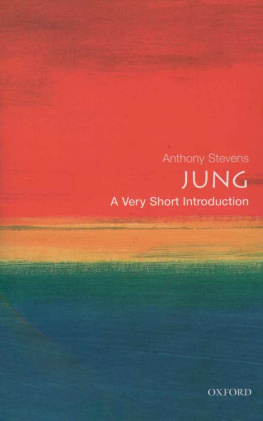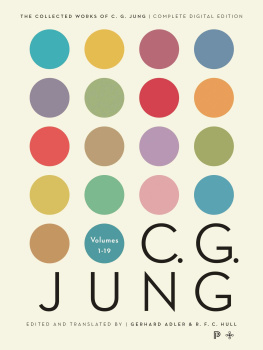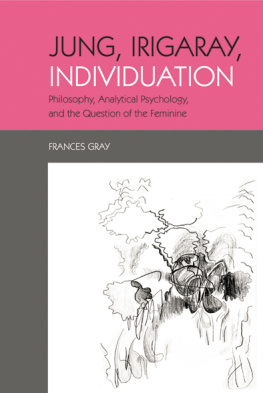ASPECTS OF THE
FEMININE
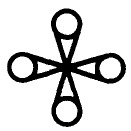
from
The Collected Works of C. G. Jung
VOLUMES 6, 7, 9 i, 9 ii, 10,17
BOLLINGEN SERIES XX
ASPECTS
OF THE
FEMININE
C. G. JUNG
TRANSLATED BY R.F.C. HULL
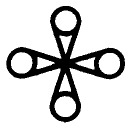
BOLLINGEN SERIES
PRINCETON UNIVERSITY PRESS
COPYRIGHT 1982 BY PRINCETON UNIVERSITY PRESS
41 WILLIAM STREET, PRINCETON, NEW JERSEY
All Rights Reserved
The Worship of Woman and the Worship of the Soul extracted from Volume 6 of the Collected Works of C. G. Jung, Psychological Types, copyright 1971 by Princeton University Press. The Love Problem of a Student and Woman in Europe extracted from Volume 10 of the Collected Works of C. G. Jung, Civilization in Transition, copyright 1964 by Bollingen Foundation, Second Edition copyright 1970 by Princeton University Press. Marriage as a Psychological Relationship extracted from Volume 17 of the Collected Works of C. G. Jung, The Development of Personality, copyright 1954 by Bollingen Foundation, Inc. Anima and Animus extracted from Volume 7 of the Collected Works of C. G. Jung, Two Essays on Analytical Psychology, copyright 1953 by Bollingen Foundation, Inc., new material copyright 1966 by Bollingen Foundation. Psychological Aspects of the Mother Archetype and The Psychological Aspects of the Kore extracted from Volume 9. i of the Collected Works of C. G. Jung, The Archetypes and the Collective Unconscious, copyright 1959 by Bollingen Foundation, Inc., new material copyright 1969 by Princeton University Press. The Shadow and the Syzygy extracted from Volume 9, ii of the Collected Works of C. G. Jung, Aion, copyright 1959 by Bollingen Foundation, Inc.
All the volumes comprising the Collected Works constitute number XX in Bollingen Series, under the editorship of Herbert Read (d. 1968), Michael Fordham, and Gerhard Adler; executive editor, William McGuire.
LIBRARY OF CONGRESS CATALOG CARD NUMBER: 82-47629
ISBN 0-691-01845-6
eISBN 978-0-691-21289-0
ISBN 978-0-691-01845-4
R0
EDITORIAL NOTE
The present collection offers a range of articles and extracts from Jungs writings that convey his views on the feminine and on topics that are intrinsic or related: marriage, Eros, the mother, the maiden, and the anima/animus concept, which is a central feature of Jungs theory of personality structure. Jung did not compose a single formal statement on the psychology of women, perhaps because some of his woman colleagueschiefly Toni Wolff, Esther Harding, and Emma Jungwere dealing separately and comprehensively with that subject.
These selections, given in chronological order, date from 1921, when Jung devoted an important section of Psychological Types to a discussion of the veneration of woman in poetry, to 1951, when he presented a mature discussion of the intertwined concepts of shadow, anima, and animus in a late work, Aion.
Probably Jungs greatest contribution to female psychology is his concept of the animus, the contrasexual (male) archetypal component of the female psyche, Mary Ann Mattoon has recently written. Jung tended to emphasize its negative aspects.... Too little has been written about the positive side of the animus. Jung mentioned its discriminative function, which gives to womans consciousness a capacity for reflection, deliberation, and self-knowledge, and its qualities of creativity, procreativity, assertiveness, and initiative. For an interpretation of approaches to the theme of the feminine by Jung and his followers, the reader is referred to Dr. Mattoons book Jungian Psychology in Perspective (1981), pp. 84 ff.
W. M.
I
THE WORSHIP OF WOMAN AND THE WORSHIP OF THE SOUL
[375] The Christian principle which unites the opposites is the worship of God, in Buddhism it is the worship of the self (self-development), while in Spitteler and Goethe it is the worship of the soul symbolized by the worship of woman. Implicit in this categorization is the modern individualistic principle on the one hand, and on the other a primitive poly-daemonism which assigns to every race, every tribe, every family, every individual its specific religious principle.
[376] The medieval background of Faust has a quite special significance because there actually was a medieval element that presided over the birth of modern individualism. It began, it seems to me, with the worship of woman, which strengthened the mans soul very considerably as a psychological factor, since the worship of woman meant worship of the soul. This is nowhere more beautifully and perfectly expressed than in Dantes Divine Comedy.
[377] Dante is the spiritual knight of his lady; for her sake he embarks on the adventure of the lower and upper worlds. In this heroic endeavour her image is exalted into the heavenly, mystical figure of the Mother of Goda figure that has detached itself from the object and become the personification of a purely psychological factor, or rather, of those unconscious contents whose personification I have termed the anima. Canto XXXIII of the Paradiso expresses this culminating point of Dantes psychic development in the prayer of St. Bernard:
O Virgin Mother, daughter of thy Son,
Humbler and more exalted than all others,
Predestined object of the eternal will!
Thou gavest such nobility to man
That He who made mankind did not disdain
To make Himself a creature of His making.
Verses 22-27, 29-33, 37-39 also allude to this development:
This man, who from the nethermost abyss
Of all the universe, as far as here,
Has seen the spiritual existences,
Now asks thy grace, so thou wilt grant him strength
That he may with his eyes uplift himself
Still higher toward the ultimate salvation.
...
I... proffer to thee
All my prayersand pray they may suffice
That thou wilt scatter from him every cloud
Of his mortality, with thine own prayers,
So that the bliss supreme may be revealed.
...
May thy protection quell his human passions!
Lo, Beatrice and many a blessed soul
Entreat thee, with clasped hands, to grant my wish!
[378] The very fact that Dante speaks here through the mouth of St. Bernard is an indication of the transformation and exaltation of his own being. The same transformation also happens to Faust, who ascends from Gretchen to Helen and from Helen to the Mother of God; his nature is altered by repeated figurative deaths (Boy Charioteer, homunculus, Euphorion), until finally he attains the highest goal as Doctor Marianus. In that form Faust utters his prayer to the Virgin Mother:
Pavilioned in the heavens blue,
Queen on high of all the world,
For the holy sight I sue,
Of the mystery unfurled.
Sanction what in man may move
Feelings tender and austere,
And with glow of sacred love
Lifts him to thy presence near.
Souls unconquerable rise
If, sublime, thou will it;
Sinks that storm in peaceful wise
If thy pity still it.
Virgin, pure in heavenly sheen,
Mother, throned supernal,

